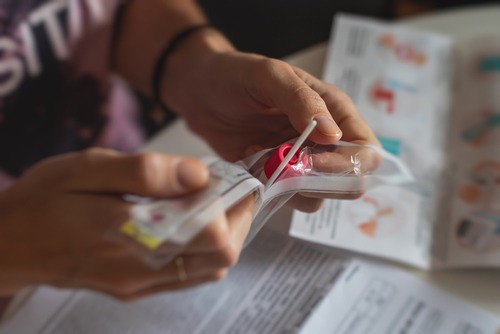
The National Institutes of Health (NIH) Rapid Acceleration of Diagnostics (RADx) initiative split $77.7 million among 12 new contract awards last week for potential, rapid SARS-CoV-2 diagnostic tests.
Part of the RADx Tech program, which gathered a panel of technical, regulatory and business experts to assess the viability of new products, these awards will support development, validation, scale-up and manufacturing of selected projects. All will be home and point-of-care testing platforms meant to reduce costs for users, or point-of-care tests capable of detecting multiple respiratory infections.
“These technologies represent important innovations to address the need for ready access to rapid, low-cost tests everywhere in the country, including in every home,” Dr. Bruce Tromberg, director of the National Institute of Biomedical Imaging and Bioengineering (NIBIB) and lead for RADx Tech, said. “The potential to test simultaneously for multiple types of infection at the point-of-care, is a new frontier that we hope to advance and could be a major step toward transforming U.S. healthcare.”
The tests themselves could be divided into two essential categories: those for viral RNA detection and those for viral antigen detection.
Among the former, selected possibilities included Detect of Connecticut, along with a myriad of California-based efforts from Palogen, Quidel, Uh-Oh Labs and the University of California. These include compact tests capable of expanding to include other respiratory pathogens, quick-analyzing nanoelectric biosensors, single-use cartridge-based devices and a means for sample pooling and processing in cheaper, larger batches.
On the viral antigen side, awardees include Becton, Dickinson and Company, Ellume USA LLC, Luminostics Inc, LumiraDx, Princeton BioMeditech and Quidel once more. These include everything from lateral flow immunoassays to smartphone-connected, glow-in-the-dark antigen immunoassays and microfluidic immunofluorescence assays.
This latest round of awards is being offered in addition to 33 previously distributed through the RADx technology development program.




